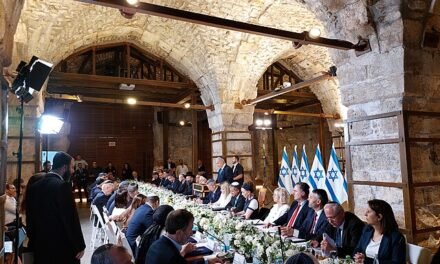In Gaza’s Rafah, 12-year-old Noor clutched her tattered doll as Israeli airstrikes lit up the night sky on Friday, marking the start of “Operation Gideon’s Chariots.” “I just want to sleep without fear,” she whispered to her mother, huddled in a makeshift tent. Across the border, in an Israeli town near Gaza, Sarah Levi, a mother of two, rushed her children to a bomb shelter as Hamas rockets wailed overhead. Israel’s major new offensive, launched as U.S. President Donald Trump left the Middle East without a ceasefire, has shattered lives on both sides, with Gaza health officials reporting 250 Palestinian deaths in the past week alone.
The Israeli military struck 130 Hamas targets over two days, aiming to dismantle the group’s infrastructure and free hostages. Prime Minister Benjamin Netanyahu, announcing the operation late Friday, vowed to secure Gaza’s territory until “our people are safe.” The war, reignited by Hamas’s October 7, 2023, attack that killed 1,200 Israelis and took 250 hostages, has claimed 53,000 Palestinian lives, mostly civilians, and displaced 90% of Gaza’s 2.3 million residents. A two-month aid blockade has left families like Noor’s starving, with hospitals turning away the wounded.
Trump’s regional tour—covering Saudi Arabia, Qatar, and the UAE but omitting Israel—ended without a peace deal. In Qatar, he spoke of Gaza’s pain, saying, “Kids are dying, families are broken; it’s devastating,” and proposed a vague “freedom zone” with no clear plan. His administration freed U.S.-Israeli hostage Edan Alexander this week, but broader talks collapsed as violence surged. For Gazans like Mahmoud Salem, a 40-year-old teacher, the news stung. “We hoped for help,” he said, standing amid his school’s ruins. “Instead, more bombs.”
In Israel, the 58 remaining hostages’ families live in torment. At a Tel Aviv vigil, David Cohen held a photo of his kidnapped daughter, his voice cracking: “She’s 19, loves painting. Every strike risks her life.” The human cost is unrelenting: Gaza’s children, like Noor, draw pictures of homes they’ll never see again; Israeli kids, like Levi’s, learn to run at the sound of sirens. The U.N.’s António Guterres warned that escalation could bring “catastrophic” losses, pleading for restraint. Yet, Israel’s call-up of reservists signals a prolonged fight.
The conflict’s roots lie in Hamas’s 2023 attack, but its daily toll defines the present. In Gaza, families scavenge for food in rubble-strewn streets. “My son asks for milk, but there’s none,” Salem said, his hands trembling. In Israel, communities near Gaza live under constant threat, their schools shuttered. France’s Foreign Minister Jean-Noël Barrot labeled Israel’s tactics “unacceptable,” citing humanitarian law violations. Aid groups fear a policy of displacement, pointing to Netanyahu’s hints at encouraging Gazans to leave through destruction—a claim Israel rejects.
Grief and hope fuel reactions. Gazans post videos of shattered playgrounds, begging for aid. In Jerusalem, protesters wave signs reading “Save Our Loved Ones,” their chants echoing through the night. Globally, marches in Berlin and Toronto demand peace, with banners proclaiming “Stop the War.” Online, a Gaza mother’s plea—“Protect my children”—goes viral, while an Israeli teen tweets, “I miss my brother.” The war strains U.S.-Israel ties, with Trump’s Gulf focus irking Netanyahu, who faces pressure to balance military goals with hostage talks.
The fallout is profound. Gaza’s cities are rubble, its people famished. Israel’s economy reels from war costs, and Netanyahu’s support wanes. The U.S. risks diplomatic isolation as global anger grows. Without a ceasefire, regional players like Hezbollah could escalate tensions. For Noor, Salem, Cohen, and millions, each day is a fight to endure.
What’s next? Israel’s troop surge suggests months of conflict, while Hamas, accusing Israel of “massacres,” shuns talks. Doha mediators struggle to revive negotiations, but bombs drown out hope. In Gaza, Noor dreams of school; in Israel, Cohen prays for his daughter’s smile. As their stories ripple worldwide, one question haunts: can compassion break this cycle of suffering?


















